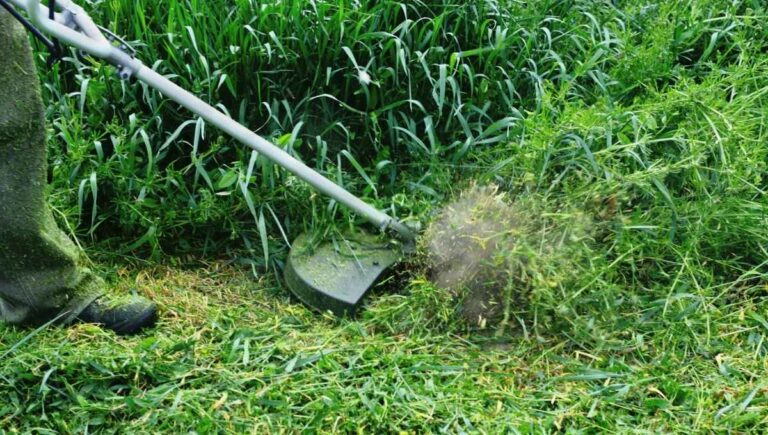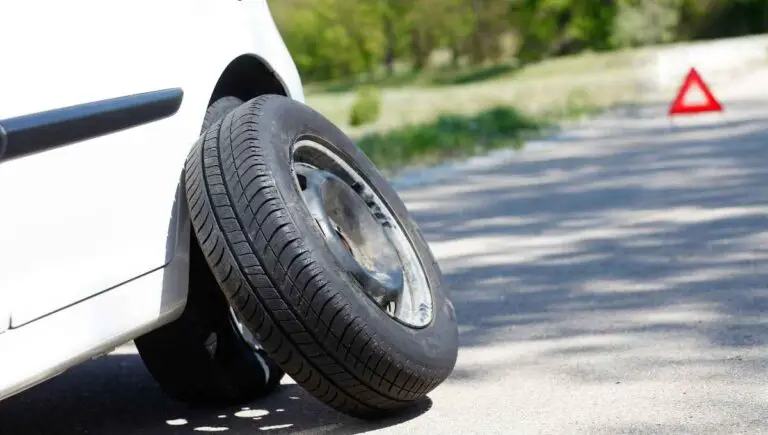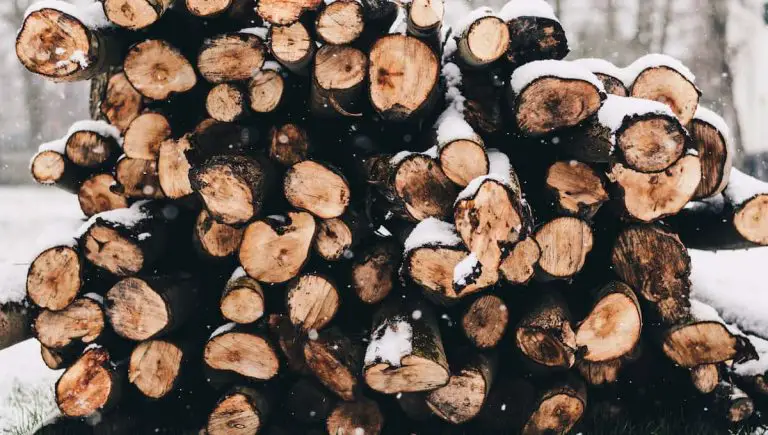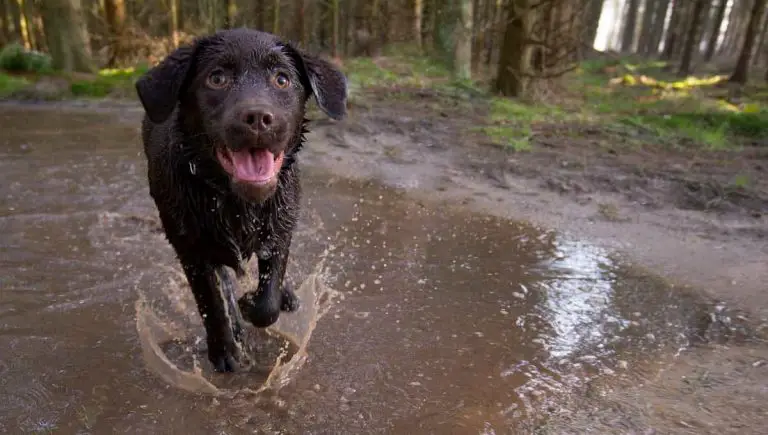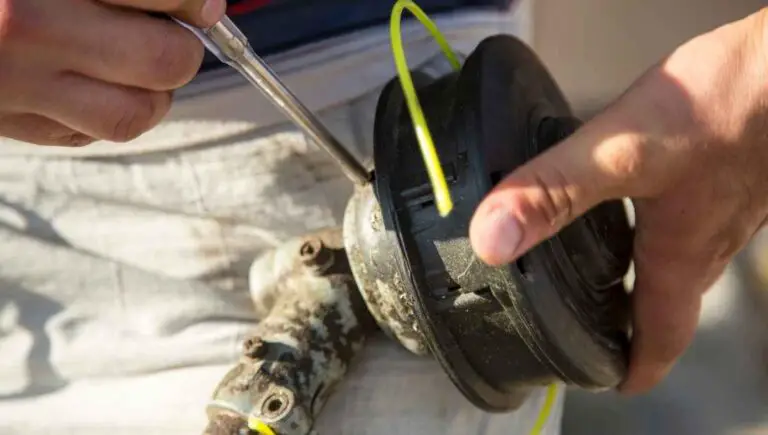Do Snowblowers Take Regular Gas? (Use This Type Instead)
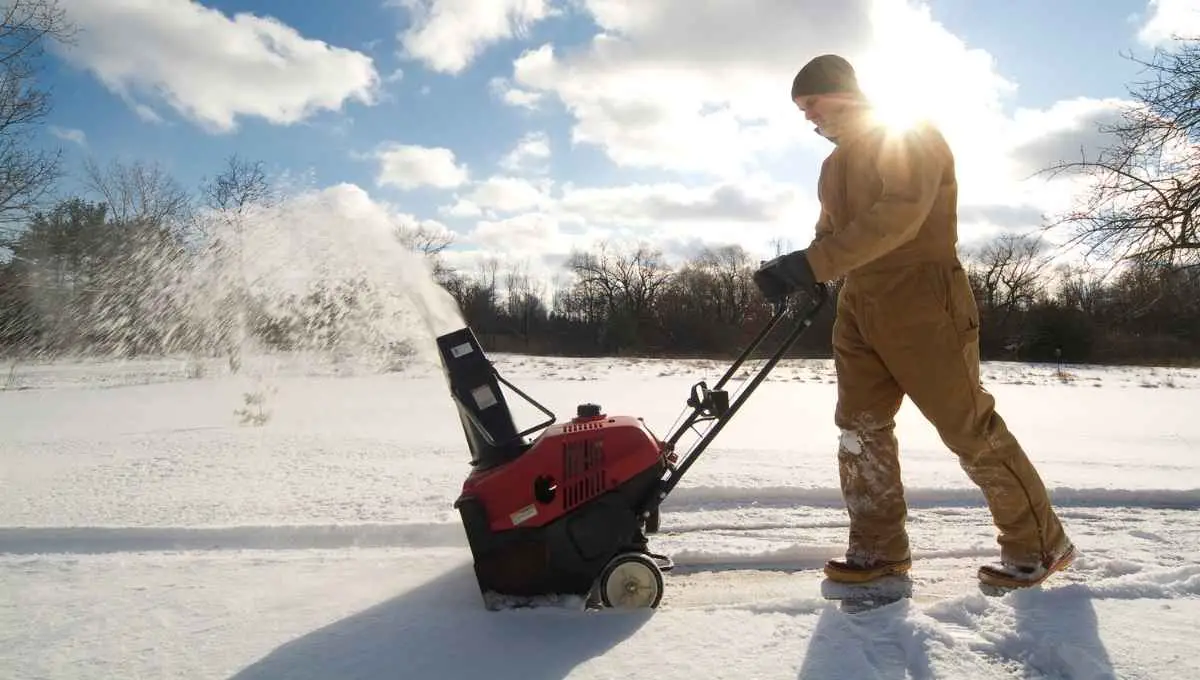
As winter begins to rear its ugly head through the northern hemisphere, we all need to dig out our snowblowers from the garage. Perhaps you have some regular gas lying around and wonder if snowblowers take regular gas.
Snowblowers can work efficiently on regular gas, but premium gas is actually more ideal for a snowblower thanks to its low level of ethanol, which prevents your snowblower from corroding over time.
However, there are many types of premium gas and other types of gas to consider when it comes to your snowblower. We are going to break down all the types of gas so you can learn which one is best for your snowblower.
This post contains affiliate links from Amazon and other stores. This means Yard Blogger may earn a commission if you make a purchase using any of our links. Please refer to our full affiliate disclosure policy for full details.
Here’s a Quick Pro Tip!
Snowblowers run just fine on regular gas but regular gas is not ideal for the health of your snowblower’s components.
To increase the lifespan of your snowblower, try these products instead:
1. TruFuel – An ideal alternative to regular gas specifically made for snowblowers
2. Star Tron Enzyme Fuel Treatment – Protects the vulnerable parts of your snowblowers that are prone to corroding.
What Kind of Gas Do Snowblowers Use?
The most recommended gas for snowblowers is gas with a low ethanol percentage. Gas with a high amount of ethanol will corrode your snowblower’s engine. Therefore, choosing a gas with a low content of ethanol will increase the lifespan of your snowblower.
Ask for Premium Unleaded 87/91 Non-Ethanol gas next time you head to the gas station. This gas type is perfect for outdoor equipment. However, sometimes hard to locate.
In this case, 87 octane fuel is sufficient for a snowblower. This type of gas is considered regular gas at gas stations.
If you have the option to use a higher octane gas such as Premium 92/93, it is not necessary for a snowblower.
Can I Use Regular Gas in My Snowblower?
Regular gas is sufficient to use in your snowblower- specifically 87 octane. The most important thing to look for in gas for your snowblower is the ethanol content. The lower the better.
87 octane fuel has a 10% ethanol content which is almost perfect for a snowblower.
Ideally, you want to use a fuel that doesn’t have any ethanol added to save your engine from corroding faster, but this can be hard to find since non-ethanol gas is bad for the environment. 87 octane is Regular gas at the gas station and, therefore, very accessible.
Do Snowblowers Take Regular Gas?
Snowblowers work very well on regular gas. This is because regular gas has a low ethanol content which is ideal for a snowblower. However, if you can locate Premium Unleaded 87/91 Non-Ethanol gas, this is ideal.
Regular gas contains around 10-15% ethanol, which works great for vehicles, but can be damaging to smaller engines.
Since ethanol burns hotter in smaller engines, it can cause corrosion to the rubber, plastic, and metal components of your equipment as it overheats.
You might also enjoy our post on Should You Knock Down Icicles?
Should I Use Regular or Premium Gas in My Snowblower?
Premium gas is the ideal option for a snowblower since it doesn’t contain any ethanol. Opt for either 87 or 91 Unleaded Non-Ethanol Premium gas. The lack of ethanol will maintain the health of your engine for a longer time.
Ethanol burns hot when it is used in a vehicle, which is necessary for the engine to work. But in smaller engines, the ethanol will burn hotter because there is less surface space.
When this happens, the ethanol will begin to corrode your equipment at a faster rate.
Hence, premium gas that has no ethanol is ideal for your snowblower. However, avoid the higher octane premium gas such as 92 and 93.
This gas is meant for turbocharging vehicles and can be dangerous in a snowblower.
Does My Snowblower Need Mixed Gas?
The only snowblowers that need mixed gas are two-cycle/two-stroke snowblowers. If you bought a snowblower recently, then you likely don’t have a two-cycle snowblower since all manufacturers stopped making this type.
Your modern snowblower has a four-stroke engine that does not need mixed gas. However, if you dug out your cherished snowblower from the ’90s, then it’s possible it has a two-stroke engine.
Use a mixture of one gallon of gasoline with four ounces of two-cycle engine oil for this type of snowblower.
You might also enjoy our post on How Short to Cut the Grass Before Winter
Do Blowers Take Mixed Gas?
Modern snowblowers do not take mixed gas but that is not the case for older snowblowers with a two-cycle/two-stroke engine. If you have this type of snowblower, you will have to mix your gas with oil.
Snowblower manufacturers stopped using two-stroke engines around 2014. This was not their choice since the engine manufacturers were the first to stop producing the two-stroke engine.
This had to be done because the engine could not meet tightening EPA standards for vehicle exhaust emissions.
What Is the Best Fuel for My Snowblower?
The best fuel for your snowblower is Premium Unleaded 91 Non-Ethanol thanks to the low content of ethanol which is corrosive to snowblower engines. If this is not an option, then 87 Octane Regular Gas will suffice.
Although Premium 91 fuel is great for your snowblower, avoid Premium 92 and Premium 93 fuel at the gas station. This gas type is not intended for your snowblower and will just cost you more with no added benefits.
If you have Premium 91 available, use that. If not, use 87 Octane Regular gas as your next option.
Can I Put 93 Octane in My Snowblower?
93 Octane fuel is simply not necessary for a snowblower. This gas type is designed for high compression engines in vehicles to prevent the engine from spontaneously combusting. Small engines in snowblowers are not built with high compression ratios.
Therefore, there is no need to prevent the engine from combusting since there is no threat in the first place.
Additionally, 93 Octane gas will not improve the fuel efficiency or performance of your snowblower since it does not even require that type of gas.
On the other hand, this gas type will not hurt your snowblower at all. So, if you have some extra 93 Octane on hand, then feel free to use it.
But, don’t go out and specifically buy it since you will just be wasting your money.
91 Octane Gas for Snowblower
The ideal gas type for snowblowers is 91 Octane since it doesn’t contain any ethanol. Ethanol burns hotter in snowblowers than in vehicles that corrodes your snowblower’s engine while in use.
Your engine will also deteriorate while it is being stored if there is ethanol left on it. Therefore, 91 Octane is ideal for your snowblower.
However, keep in mind that the 91 is the octane level and this is as high as you want to go for a snowblower. 92 and 93 Octane gas is unnecessary for your snowblower.
Is e10 the Same as Regular Gas?
E10 fuel is not the same as regular gas. E10 gas contains 10% ethanol and has an octane level of at least 95. Regular gas has a lower octane level of 87. E10 was introduced to boost octane levels which is not necessary for snowblowers.
Apart from boosting octane levels, it also satisfies the conditions of the renewable fuel standard. While this gas type is great for cars, it is not needed for snowblowers.
Snowblowers should use gas that has little to no ethanol and has an octane rating of 87.
You might also enjoy our post on How to Stop Icicles From Forming on Your Roof and Gutters
Is e10 Gas Regular Unleaded Gas?
E10 gas is different than regular unleaded gas due to the higher octane level of E10. E10 has an octane level of at least 95 whereas regular unleaded gas has an octane level of 87. For snowblowers, an octane level of 87 is ideal.
E10 and regular unleaded gas have the same ethanol content of 10% but, as mentioned, the octane level is higher in E10.
Although high octane is ideal for cars, it is not ideal for snowblowers since it burns hotter in smaller engines which will deteriorate the engine faster.
Is Regular Gas Oxygenated?
Regular gas is indeed oxygenated. Regular gas contains 10% ethanol, which is an alcohol that has one oxygen molecule per atom. Oxygen is needed in gas to make for more complete combustion and to release less carbon monoxide for the health of the planet.
In regards to your snowblower, you want a gas type that has less ethanol which in return contains less oxygen. Your snowblowers engine does not need as much power to combust as a vehicle does so it requires less oxygen.
What Is Nonoxygenated Gas?
Nonoxygenated gas is a gas type that does not contain any ethanol. This type of gas is called Premium 91 Non-Ethanol gas, which is the perfect type of gas for your snowblower.
Ethanol is an alcohol that burns to make an engine combust, along with gasoline. Your snowblowers engine does not require such strong combustion to complete a cycle since it is smaller.
Therefore, ethanol in your snowblower is not necessary and will only contribute to the corrosion of your engine since it burns hotter in a snowblower than in a car.
What Is Unleaded Gas?
Lead used to be added to gas to help reduce engines from spontaneously combusting and boost octane ratings. Snowblower engines are not at risk of spontaneously combusting since they don’t have a high compression engine like vehicles do.
Additionally, the lower the octane rating the better in terms of snowblowers. Octane is needed to avoid spontaneous combustions, but, as mentioned, snowblowers are not at risk for this.
Therefore, it is best to use unleaded gas in your snowblower. Thankfully, this is widely available due to environmental laws.
You might also enjoy our post on How to Store Firewood Outside in Winter
Non-Ethanol Gas for Snowblower
Non-ethanol gas is ideal for your snowblower and is available as Premium 91 Unleaded gas at most gas stations. Ethanol is corrosive to your snowblower’s engine since it burns hotter in smaller engines than it does in cars.
Ethanol can negatively affect your snowblower’s engine while in use and while it is being stored. It will corrode and deteriorate your engine and many other components.
Non-ethanol gas also lasts longer when stored properly.
What Gasoline Is Ethanol-Free?
Gasoline that is ethanol-free is called Premium 91 Non-Ethanol Unleaded gas. This gas type contains zero ethanol and has a low octane rating of 91. While low octane ratings are not ideal for cars, it is perfect for small outdoor equipment like snowblowers.
Ethanol will cause your snowblower to overheat due to the fact it burns hotter in small engines, compared to car engines, making an ethanol-free gas ideal for snowblowers.
You also want to opt for an octane level of 91, which is perfect for a snowblower. Higher octane levels are not needed in snowblowers.
Do I Need a Gasoline Additive for My Snowblower?
A gasoline additive is not necessary for the regular use of your snowblower but is needed for when you store your snowblower if you use regular gas that contains ethanol.
Regular gas contains ethanol and when ethanol mixes with water, even the smallest amount, it will begin to corrode your engine and other parts over time, especially when it’s sitting still waiting for the next snowfall.
To avoid this from happening, you can add a fuel stabilizer to the gas before you store your snowblower.
When you are planning to store your snowblower, add the additive to your fuel and run the engine for a few minutes. Your snowblower will now be protected for up to one year.
What is Trufuel for Snowblower?
Trufuel is a specially designed fuel for snowblowers. It is ethanol-free, has an octane rating of 92, and includes high-quality synthetic oil that will protect your snowblower’s components when it is being stored.
While Trufuel may seem ideal for a snowblower it is not necessarily needed if you can purchase Premium 91 gas from your gas station, not to mention its price tag.
Trufuel costs roughly $9 per liter which is almost ten times as expensive as one liter of premium gas, depending on the day.
What Is Gasoline Stabilizer?
A gasoline stabilizer is a solution that provides your snowblower with the necessary lubricant so its parts do not corrode while it is being stored. The ethanol in regular gas contributes to the corrosion of parts.
Regular gas contains around 10% ethanol. When ethanol comes into contact with water, it begins to corrode several components of a snowblower.
A gasoline stabilizer can be added to your regular gas to prevent any corrosion from happening thanks to its protective qualities.
Where Do I Buy Gas for My Snowblower?
You can buy gas for your snowblower at your local gas station. Look out for Premium 91 Non-Ethanol gas as this is the most ideal for snowblowers. Avoid Premium 92 and 93 octane gas as well as 87 octane regular gas.
However, if only 87 octane regular gas is available, this will not be detrimental to your snowblower.
Your snowblower will run fine with this type of gas but you want to make sure to add a fuel additive when you plan to store your snowblower to avoid corrosion.
How Much Gas Does a Snowblower Use?
A 5-horsepower snowblower will use roughly a gallon of gasoline every two hours. Most snow blowers have a one-gallon tank so make sure to have backup gasoline if you are planning a bigger job.
We recommend purchasing a two-gallon gas can and filling it up all the way at your local gas station. This way you can fill up once and have some leftover if your snowblower runs out of gas.
This two-gallon gas can from Amazon is perfect.
What Size Gas Can for Snowblower?
A gas can that is 2-2.5 gallons is perfect for a snowblower since a snowblower runs through about one gallon of gas per hour. This way you can have some backup if your job runs long.
This size gas can is also easy to lift up and pour into your snowblower, avoiding any back injuries. If you can’t find any 2-gallon cans, then a 1-gallon can work just fine, you will just have to fill more than one up at a time.
You might also enjoy our post on Can You Mow Your Lawn in the Winter or Should You Wait
How long Will a Snowblower Run On a Gallon of Gas?
On average, a 5-horsepower snowblower will run on a gallon of gas for about two hours. It is wise to have backup gas on hand in case you run out of gas halfway down your driveway.
Having a stock of premium gas will make your snow-blowing adventures much easier for you.
Premium gas lasts at least 6 months on the shelf, so if you stock up at the beginning of the winter, you should have just enough before the snow stop fallings.
Related Questions
Can I Use Regular Gas in My Toro Snowblower?
Toro recommends using unleaded gasoline with an octane rating of at least 87. They mention that gas with ethanol up to 10-15% is acceptable.
However, once reading this article you know that less ethanol is better for the health of your snowblower’s parts. But, if you are concerned about the environment, then gas-containing ethanol is better for air quality.
Just make sure that you use an additive in your gas when you are storing your snowblower.
Do Crafstman Snowblowers Take Regular Gas?
Craftsman suggests using unleaded gasoline with an octane level greater than 87 with an ethanol content no greater than 10%. This can be bought as Regular gas or Premium 91 gas at your local gas station.
Craftsman recommends this type of gas to avoid high contents of ethanol in gas that can cause destruction to the interior parts of a snowblower. The lower the ethanol content you can find, the better.
Can I Use Regular Gas in My Lawnmower?
You can use regular gas in your lawnmower but it is recommended to use gas that doesn’t contain any ethanol. This can be bought as premium 91 gas from your local gas station.
However, if you do not want to purchase premium gas or it is unavailable, then regular gas will be just fine for your lawnmower.
The ethanol will increase the chances of your lawnmower’s components to corrode so make sure you use a fuel additive when you are storing your lawnmower.
Final Thoughts
As we learned, regular 87 octane gas is acceptable for snowblowers but 91 premium non-ethanol gas is ideal.
However, non-ethanol gas is worse for the environment, so, it’s a matter of what is more important to you.
If you do use regular gas that contains ethanol just make sure to add a fuel stabilizer that will prevent your snowblowers components from corroding when it is not in use.

